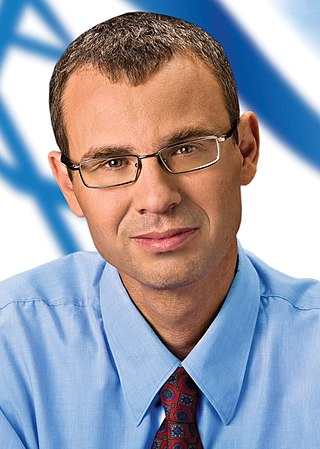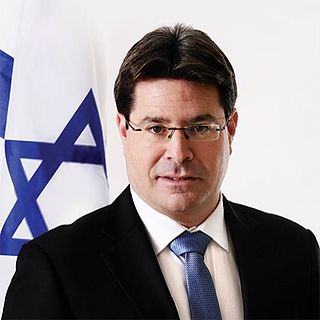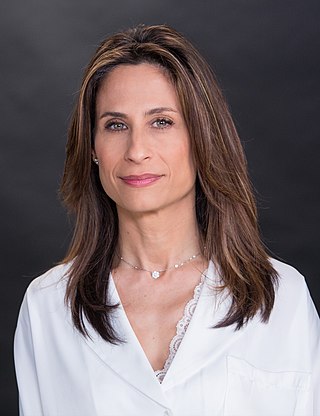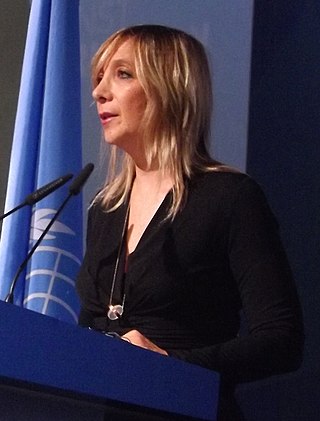In most common law jurisdictions, the attorney general or attorney-general is the main legal advisor to the government. In some jurisdictions, attorneys general also have executive responsibility for law enforcement, prosecutions or even responsibility for legal affairs generally. In practice, the extent to which the attorney general personally provides legal advice to the government varies between jurisdictions, and even between individual office-holders within the same jurisdiction, often depending on the level and nature of the office-holder's prior legal experience.

The Supreme Court of Israel is the highest court in Israel. It has ultimate appellate jurisdiction over all other courts, and in some cases original jurisdiction.

The judicial system of Israel consists of secular courts and religious courts. The law courts constitute a separate and independent unit of Israel's Ministry of Justice. The system is headed by the President of the Supreme Court and the Minister of Justice.

The attorney general of Israel heads the legal system of the executive branch and the public prosecution of the state. The attorney general advises the government in legal matters, represents the state authorities in court, advises in the preparation of legal memoranda for the government in general and the justice minister in particular. Likewise she or he examines and advises upon private member's bills in the Knesset.

Haim Yosef Zadok was an Israeli jurist and politician.

Yariv Gideon Levin is an Israeli lawyer and politician who serves as Deputy Prime Minister and Minister of Justice. He served as Speaker of the Knesset in December 2022, previously serving that role from 2020 to 2021. He currently serves as a member of Knesset for Likud, and previously held the posts of Minister of Internal Security, Minister of Tourism, and Minister of Aliyah and Integration.

Ofir Akunis is an Israeli politician. He currently serves as a member of the Knesset for Likud and is the Minister of Science and Technology. He has previously held the posts of Minister of Labor, Social Affairs and Social Services in 2020, Minister of Science and Technology in 2015-2020 and Minister of Regional Cooperation in 2020-2021.
The Israeli Judicial Selection Committee is the body that appoints judges to Israeli courts.
The Judge Advocate General's Corps, also known as JAG or JAG Corps, is the military justice branch or specialty of the United States Air Force, Army, Coast Guard, Marine Corps, and Navy. Officers serving in the JAG Corps are typically called judge advocates.

Aviad Hacohen is an Israeli attorney and professor of law.

Yesh Din: Volunteers for Human Rights is an Israeli organization working in Israel and in the West Bank. The organization was founded in 2005 by a group of women who previously worked with the organization Machsom Watch. The purpose of Yesh Din, as reflected in its publications, is to work "for structural, long-term improvement to human rights in the Occupied Palestinian Territories (OPT)".

Zvi Hauser is an Israeli lawyer and public figure served as the 17th cabinet secretary. Hauser served as a Member of Knesset between 2019-2022. During this term he held a number of positions including: Deputy Speaker of the Knesset, Chairman of the Foreign Affairs and Defense Committee and Head of the Israel-Japan Parliamentary Friendship Association.
Israel Women's Network (IWN) is a feminist non-partisan civil society organization founded in Jerusalem in 1984. IWN's mission is to advance the status of women in Israel by promoting equality through a range of projects and methods.
The Judea and Samaria Settlement Regulation Law, commonly known as the Regulation Law or sometimes the Regularization Law, is an Israeli law that aims to retroactively legalize Israeli settlements in the West Bank Area C under the Oslo Accords. It is meant to "regulate" the status of about 2,000 to 4,000 residences in 16 settlements which were built on Palestinian-owned lands. The Knesset passed the legislation 60 to 52, on February 6, 2017. According to the law, the land on which the residences are built will remain that of the legal owners, but their usage will be expropriated by the State. In exchange, the Palestinian owners will be compensated at a rate of 125%, or receive alternate lands. The law is known by some of its critics as the "Expropriation Law" due to its land expropriation components. The Israeli occupation of the West Bank is considered a breach of international law, though Israel disputes this.

Yosef Elron is an Israeli judge who has served as a justice of the Supreme Court of Israel since 2017.

Israeli law is enforced in Israeli settlements and among Israeli civilians in Area C of the West Bank, a Palestinian territory under military occupation and therefore otherwise subject to military law. Some provisions are applied on a personal basis, such that it applies to Israeli residents rather than territory. Application of the laws has created "enclaves" of Israeli law in the Israeli-occupied West Bank, and the terms "enclave law" and "enclave-based justice" describe the resulting legal system.
The Israeli Law Professors' Forum for Democracy is a voluntary, non-affiliated and independent group of about 140 permanent faculty members in the law faculties of academic institutions in Israel. The Forum was founded in 2023, in response to the 2023 Israeli judicial reform. The Forum opposes this plan, and advocates the maintenance of a robust separation of powers with sustainable checks and balances.

Orit Farkash-Hacohen is an Israeli lawyer and politician who currently serves as a member of the Knesset for the National Unity. She has previously served as Minister of Science, Technology and Space, Minister of Strategic Affairs and Minister of Tourism, and as chairwoman of the Electricity Authority.

Emi Palmor is an Israeli lawyer and senior civil servant who served as the Director General of the Ministry of Justice from 1 February 2014 to September 2019. During her 24 years of civil service, she was appointed time and again by the government to Chair public committees concerning sensitive and controversial social and legal issues in Israeli society, which she led to sustainable resolutions. Palmor is recognized for applying methods of civic engagement and participation in Government processes of policy design, and for promoting a wholistic approach to public policy, focusing on prevention and education plans rather than legislation and law enforcement. Palmor is one of the first 20 members of the Facebook Oversight Board.

The 2023 Israeli judicial reform is a set of five changes to the judicial system and the balance of powers in Israel that was proposed in January 2023; one of the five has been passed, in July 2023. The intent of the measures is to curb the judiciary's influence over lawmaking and public policy by limiting the Supreme Court's power to exercise judicial review, granting the government control over judicial appointments and limiting the authority of its legal advisors. The effort was led by Deputy Prime Minister and Minister of Justice Yariv Levin and the Chair of the Knesset's Constitution, Law and Justice Committee, Simcha Rothman.
















